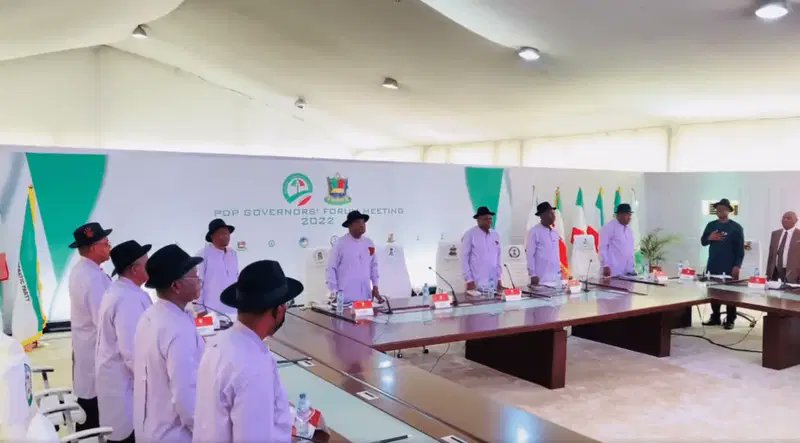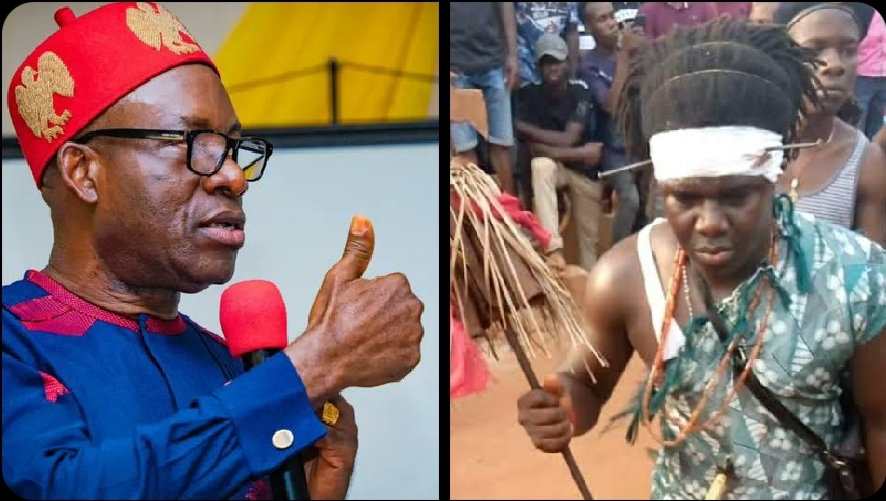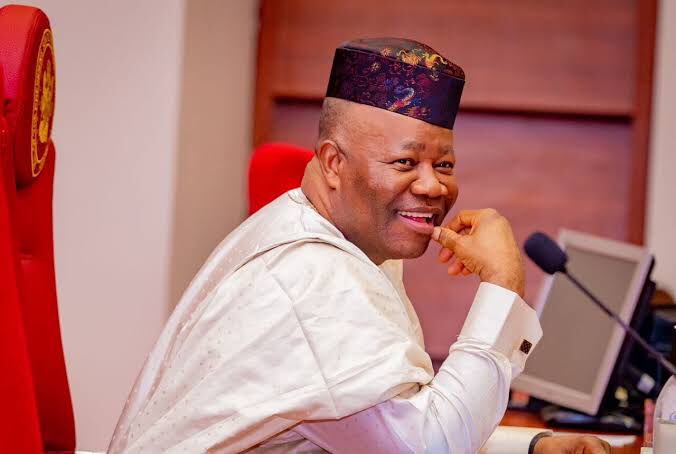
PDP Governors, Ex-Govs, and Party Leaders Hold Crucial Meeting to Tackle Internal Crisis and Defections
In a high-stakes gathering aimed at stabilizing the opposition People\'s Democratic Party (PDP), sitting governors, former governors, and top party leaders convened to address a growing internal crisis and the troubling trend of defections that have recently plagued the party. The meeting, which took place behind closed doors in Abuja,
In a high-stakes gathering aimed at stabilizing the opposition People\'s Democratic Party (PDP), sitting governors, former governors, and top party leaders convened to address a growing internal crisis and the troubling trend of defections that have recently plagued the party. The meeting, which took place behind closed doors in Abuja, was described as an urgent attempt to regain control and consolidate the party\'s position ahead of the 2027 general elections.
For months, the PDP has struggled with internal divisions that have threatened to undermine its cohesion and effectiveness as the primary opposition to the ruling All Progressives Congress (APC). The party has experienced significant defections, with key figures such as governors, lawmakers, and influential members defecting to the APC or other parties, weakening the PDP’s chances of maintaining a strong presence at the national and state levels.
At the heart of the internal crisis is a deepening power struggle between factions within the PDP. A major source of tension is the ongoing conflict over leadership positions, particularly within the party\'s National Working Committee (NWC). The leadership of the PDP, which has faced consistent allegations of mismanagement and failure to capitalize on its opposition status, has come under intense scrutiny from within and outside the party. Critics have argued that the party\'s inability to present a united front has been a key factor in its lackluster performance in recent elections.
The defection of high-profile members has further escalated the situation. Most notably, several state governors who were once key pillars of the PDP have crossed over to the APC, citing dissatisfaction with the direction of the party and the leadership\'s handling of key political issues. These defections have left a significant vacuum, with many wondering if the PDP can still remain a credible alternative to the APC in the years leading up to the next presidential election. The meeting called by the PDP governors and former governors was seen as a last-ditch effort to address these challenges head-on.
Attendees of the meeting included influential governors from various regions, along with several former governors who have previously held key positions within the party. Among the notable figures present were Governor Nyesom Wike of Rivers State, Governor Ifeanyi Okowa of Delta State, and former governors like Bukola Saraki and Ayodele Fayose. These leaders, who have long been at the center of PDP politics, were tasked with charting a course for party unity and ensuring that the PDP retains its relevance on the national stage.
One of the main issues discussed during the meeting was the growing perception of division within the party. There was a consensus that the PDP must move quickly to address internal fractures, especially as the defections have led to the weakening of the party’s presence in some key states. In a show of unity, the governors and ex-governors pledged to put aside personal ambitions and work together to resolve the crisis. However, sources at the meeting indicated that there were still significant disagreements over who should take the reins of the party moving forward.
Another crucial topic discussed was the need for greater inclusivity in the party\'s decision-making processes. Several governors and former party officials stressed the importance of ensuring that all regions and factions within the PDP feel adequately represented. This was seen as vital not only for internal harmony but also for rebuilding the party’s appeal to a broad cross-section of the Nigerian electorate.
In the face of mounting defections, there was also a push to implement strategies that could prevent further losses. Discussions were held around strengthening party structures in key states, building a more cohesive message to resonate with Nigerians, and offering better incentives for party members to stay loyal. Some leaders advocated for the creation of a robust rebranding campaign to reposition the PDP as a party that is capable of offering real solutions to Nigeria\'s myriad challenges.
The issue of party funding was another matter that took center stage. With defections draining the PDP’s financial resources, especially in states where governors have moved to the APC, party officials discussed ways to raise funds and ensure financial sustainability for the party. This included exploring alternative sources of income, such as engaging in more fundraising activities and leveraging the party\'s loyal base to bolster its financial standing.
The recent defections have not been without political consequences. Analysts have warned that the PDP risks being relegated to the role of a minor player if it cannot effectively address the internal disarray and present a united front. The defections have emboldened the APC, with the ruling party now enjoying greater support and influence in several states that were once PDP strongholds. It has also given the APC a strategic advantage as the party prepares for the 2027 elections.
Despite the challenges, there was some optimism among attendees that the PDP could recover and regain its competitive edge. The party’s leadership appears determined to regain the trust of its members and supporters. A key part of the strategy moving forward will involve engaging more with grassroots movements and revitalizing the party’s structures at the local government and ward levels. This is seen as a way to restore the PDP’s connection to the people and re-establish it as a party that genuinely represents their interests.
As the meeting drew to a close, sources revealed that the governors and ex-governors had agreed on a roadmap for addressing the party’s crisis. This included efforts to strengthen party unity, attract new members, and resolve leadership disputes. However, it remains to be seen if these efforts will translate into tangible results or if the PDP will continue to face mounting challenges in its bid to regain political relevance.
The fate of the PDP now hangs in the balance. With the 2027 elections fast approaching, the party must find a way to navigate its internal divisions and reassert itself as a force to be reckoned with. The coming weeks and months will likely be decisive in determining whether the PDP can make a successful comeback or if it will continue its downward spiral. Only time will tell if this latest meeting marks a turning point or if the party will once again find itself mired in dysfunction and discord.
Share this post
Related Posts

Anambra High Court Shocks Nation: Three Famous Native Doctors Jailed in Crackdown on Crime – What’s Next for Akwa Okuko, Onyeze Jesus, and Eke Hit?
In a stunning development that has gripped Anambra State and beyond, a High Court in...

Bimbo Akintola Reveals Why She Supported Tinubu: “Someone Annoyed Me With Their Bullying”
Nollywood veteran Bimbo Akintola has sparked fresh conversation across social media after openly explaining why...

“We Are Here to Sacrifice, Not to Make Money” — Akpabio Fires Back at Critics in Senate Speech
In a bold and reflective statement that has sparked conversations nationwide, Senate President Godswill Akpabio...